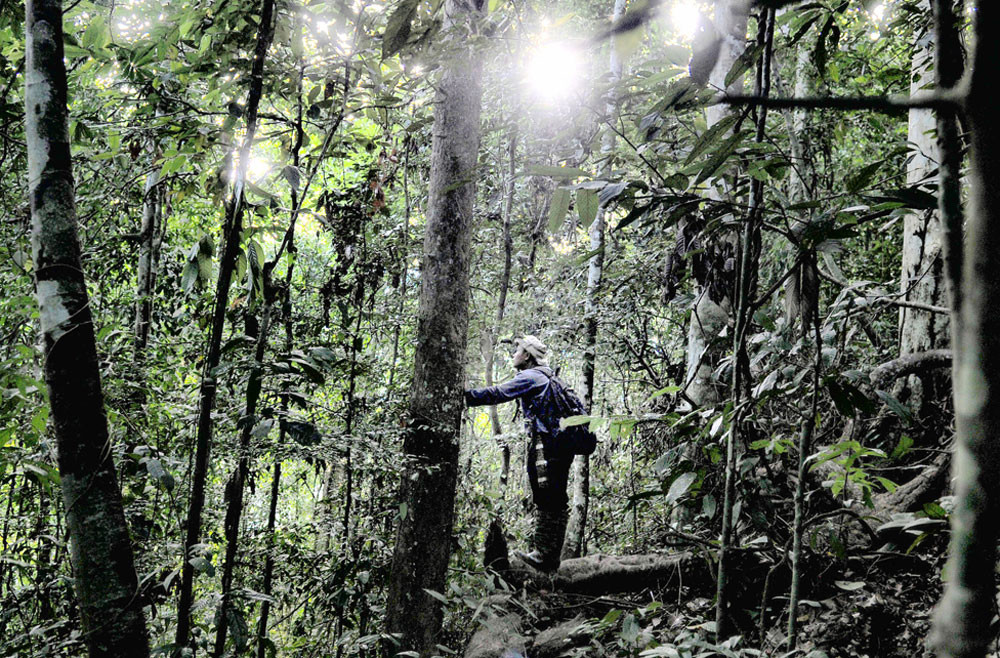Popular Reads
Top Results
Can't find what you're looking for?
View all search resultsPopular Reads
Top Results
Can't find what you're looking for?
View all search resultsIndonesia calls for fair share from developed countries to preserve biodiversity
Change text size
Gift Premium Articles
to Anyone
I
ndonesia has called for the nature deal to protect ecosystems, agreed at the 15th Conference of Parties (COP15) to the United Nations Convention on Biological Diversity (CBD) in Canada, to also come with developed countries contributing their fair share to protecting nature.
The biodiversity summit adopted the “Kunming-Montreal Global Biodiversity Framework'' (GBF) on Dec. 19 that included four goals and 23 targets for achievement by 2030 to address the danger of biodiversity loss and restoring natural ecosystems.
The countries agreed to secure 30 percent of land and water areas of the planet as protected areas for conservation by 2030, the “30 by 30” target.
The countries also agreed on phasing out subsidies that harm biodiversity by at least US$500 billion annually, and also to mobilize $200 billion per year in domestic and international biodiversity-related funding from all sources by 2030.
The deal also included raising international financing from developed to developing countries, particularly least-developed countries, small island developing states and countries with economies in transition, to at least $20 billion per year by 2025 and to $30 billion per year by 2030.
Deputy Environment and Forestry Minister Alue Dohong, Indonesia’s head of delegation to CDP COP15, said that it was important that the deals reached at the convention were implemented with the common but differentiated responsibility (CBDR) principle by the convention members, which was a fundamental principle in international environmental law, he argued.
“Indonesia cannot agree to the GBF if the CBDR principle is not practiced,” Alue said during the conference in Montreal, according to the ministry’s statement on Dec. 19.
He also pointed out that various studies had estimated that implementing the GBF to protect biodiversity worldwide would need as much as $700 billion, which would put a burden on Indonesia as a developing country with the largest biodiversity in the world.
The deputy minister urged developed countries to act on their responsibility to provide funding to developing countries as mandated by Article 20 of the 1992 CBD.
He also said that Indonesia had reached some conservation targets outlined in the GBF, as by 2020 over 54 percent of forested areas in Indonesia had been declared protected areas, with 8.7 percent for marine areas.
Indonesia plans to expand marine protected areas to up to 32.5 million hectares by 2030 until reaching 30 percent of the country’s total marine area by 2045.
Indigenous roles
Meanwhile, environmentalists argue that the decisions reached at the biodiversity conference served as an opportunity to recognize the rights of indigenous people.
Greenpeace Indonesia forestry campaigner Sekar Banjaran Aji said that the deals agreed at Montreal also explicitly recognized the important roles of indigenous peoples in preserving biodiversity.
She said that as of August, there were still about 17.7 million ha of customary lands that had not been recognized by the Indonesian government while only 3.1 million ha of customary lands had been recognized by the government, citing mapping data of customary lands by the Ancestral Domain Registration Agency (BRWA).
“The Indonesian government needs to ensure that its domestic policies are in line with the targets agreed at COP15, such as by abandoning the outdated conservation patterns and adopting indigenous community-based conservation,” Sekar said on Wednesday.
However, Sekar pointed out that COP15 had not been able to put forward ambitious targets, concrete steps and enough funding needed to stop mass biodiversity losses.
The funding promised by the deal was also not yet enough to cover the $700 billion needed to preserve biodiversity, she added.
“It’s not just a problem of how much, but how quickly the funding can go to developing countries,” Sekar said.










